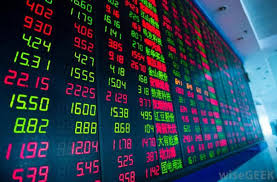Uncertain market movements and losing trades can instill the thinking that ‘forex trading is just gambling!’ This is not true because forex trading offers consistent returns if you do it after learning the required trading skill set. Although some similarities, like risk and uncertain outcomes, are present; but forex trading is far distinct. This article describes key facts that distinguish forex trading from gambling.
Contents
Understanding Forex Trading & Gambling
Forex trading involves buying and selling currencies in the global currency market. You aim to profit from the fluctuations in exchange rates between different currency pairs.
Gambling refers to the act of wagering money or something of value on an event with an uncertain outcome, with the primary intent of winning additional money or material goods. Common forms of gambling include casino games, sports betting, and lottery games.
Why Forex Trading is Not Gambling?
1. Requirement of Knowledge and Skills in Forex Trading
Forex trading requires a certain level of knowledge, skill, and experience. To become successful in forex trading, you need to invest time in learning about market analysis, economic indicators, technical analysis, risk management, and trading strategies.
In contrast, gambling activities rely predominantly on luck or chance, with minimal emphasis on knowledge or skill.
2. Utilization of Risk Management Techniques in Forex Trading
Currency trading involves risk management techniques to mitigate potential losses and protect capital. Stop-loss orders, proper position sizing, and optimum to-risk-reward ratios help you minimize risk during trading. In gambling, risk management is limited, and participants often have less control over potential losses.
3. Long-term Perspective in Forex Trading
Trading in forex market is typically approached with a long-term perspective. You aim to achieve consistent profitability over time by employing strategies based on market analysis and careful decision-making. Gambling, on the other hand, tends to focus on short-term outcomes with instant gratification.
4. Market Analysis and Strategies in Forex Trading
Forex traders engage in market analysis, study economic indicators, and utilize various trading strategies to make informed decisions. The aim is to anticipate market movements and profit from price fluctuations.
On the other hand, strategies are limited, and the outcome relies heavily on chance rather than analysis in gambling.
Key Similarities
- Uncertainty of outcomes.
- Emotional Factors: Traders and gamblers alike can experience excitement, fear, greed, and other emotions that can impact decision-making.
- Risk of financial loss.
How Forex Trading Can Become Gambling?
If you don’t follow these forex trading rules;
- Trade entry without proper working.
- stop loss is not applied.
- Emotional decision-making for executing trades.
- Risk management rules not followed.
Is Forex Trading Gambling or Investment?
Although forex trading shares some similarities with gambling, it is considered more akin to investment. Unlike gambling, forex trading relies on market analysis, knowledge, and skill. Successful forex traders employ time-tested trading strategies, manage risk, and take a long-term approach. They can minimize risk factors through trading skills.
While there are risks involved, the focus is on achieving consistent profitability based on informed decisions rather than relying solely on chance.
Bottom Line
While there are similarities between forex trading and gambling, they are fundamentally different activities. Forex trading requires knowledge, skill, and analysis, whereas gambling relies predominantly on chance.
Forex trading is a form of investment, where participants aim to profit from market movements by utilizing trading strategies and risk management. For a successful forex trading venture, it’s crucial to understand its distinguishing facts and approach it with a disciplined and informed mindset.

